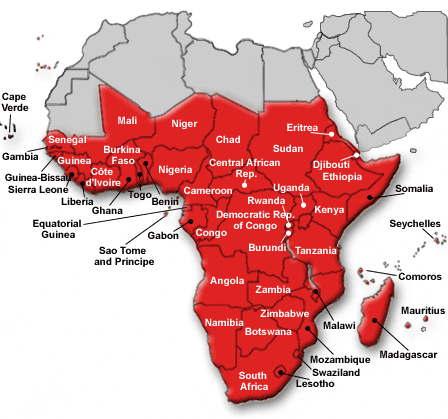The region’s economic vitality should pick up slightly to 3.6 percent in 2022 and 3.8 percent in 2023, the Washington-based Bretton Woods institution has announced.
By Abdourahmane Diallo
After a first recession in 25 years, the black continent is returning to growth.
According to the World Bank, high commodity prices should help the region’s recovery in the short term.
Nigeria and Angola will benefit from higher oil prices and the gradual easing of production cuts in the Organisation of Petroleum Exporting Countries (OPEC), the financial institution said.
Growth is expected to reach 2.5 percent in 2022 and 2.8 percent in 2023 in Nigeria, while it will accelerate to an average rate of 3 percent in 2022-23 in Angola.
In South Africa, growth is expected to fall back to pre-pandemic levels, constrained by structural impediments and the country’s heavy debt burden.
On the other hand, the World Bank notes that high prices for cotton and foodstuffs, such as coffee will benefit agricultural exporters (Ethiopia, Kenya, and Tanzania).
However, these figures are almost one percentage point lower than the average for the period 2000-19.
This is a consequence of the lingering effects of the pandemic and the reduction in aid measures.
This is further compounded by policy uncertainty and increased insecurity in some parts of the continent.
In some countries, the expansion of agricultural activities will also be constrained by various uncertainties, including periods of drought and below-average rainfall, as well as increased conflict, the WB added.
According to the World Bank, the pandemic has hindered progress in poverty reduction and key development goals across the region, erasing more than a decade of gains in per capita income previously made by some countries.
In more than a third of the region’s countries, including South Africa, Angola, and Nigeria, per capita income in 2022 will stay below the level of a decade ago, it argues.
The risks to this forecast are tilted to the downside, the WB says. However, poverty, food insecurity, rising food prices, and geopolitical tensions could weigh on consumer demand and dampen growth.
In addition, a sharp slowdown in global economic growth could lead to significant downward corrections in commodity prices, to the detriment of oil and metals-producing countries, the Bank warns.
It insists that countries facing debt distress may find it harder to access external financing, requiring a sharp fiscal adjustment.
The World Bank also notes that low vaccination rates against Covid-19 expose countries in the region to the rebirth and worsening of epidemic waves.
This could again undermine economic activity.
A prolonged pandemic could exacerbate existing development and health problems, undermine structural and fiscal reforms, and result in sustained losses of human capital.
ARD/te/fss/as/APA


